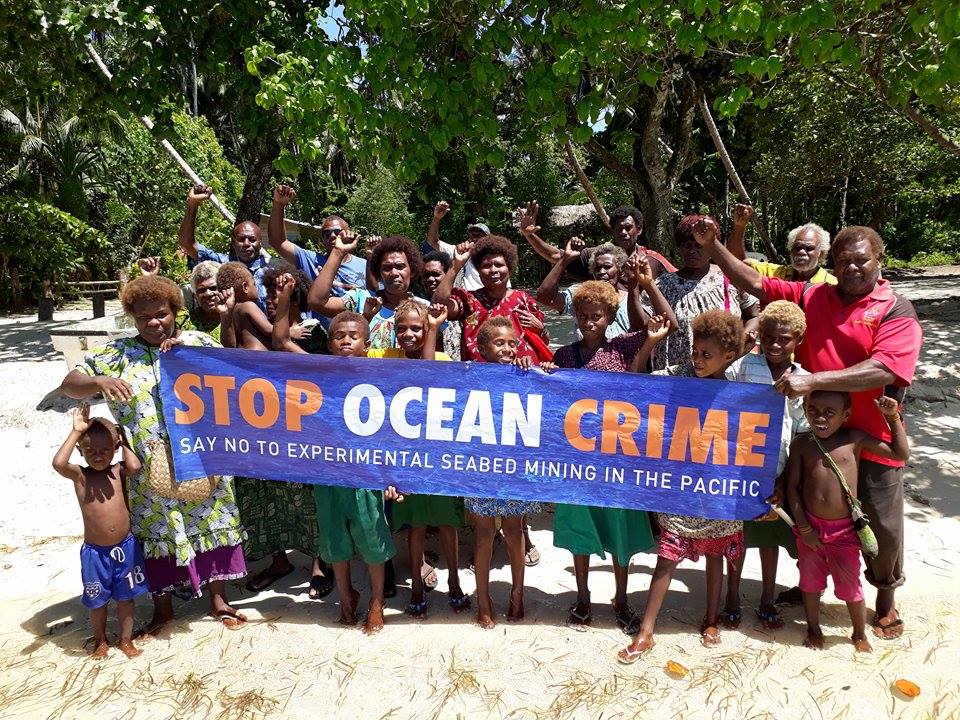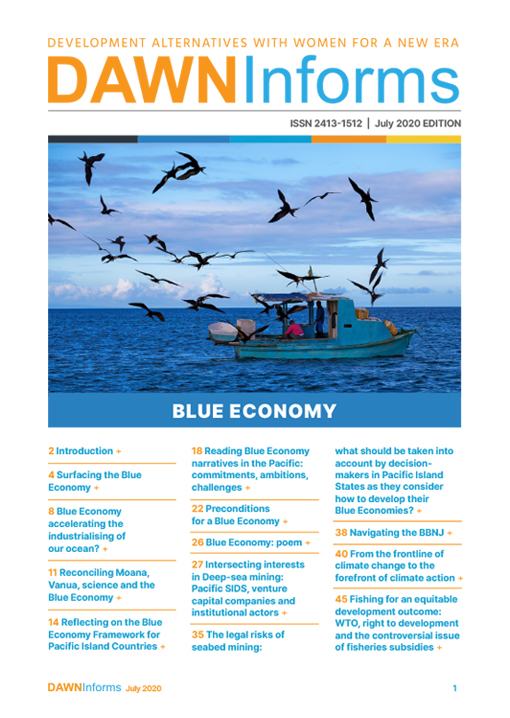Over the past two years, in partnership with the Pacific Network on Globalisation (PANG), DAWN has been tracking and analysing Blue Economy discourses and related developments – including global and regional conferences, intergovernmental negotiations and corporate-state initiatives – on oceans and the exploitation of ocean resources in the Pacific region. To share initial concerns with other leading scholars and advocates in the Pacific region, in February 2019 DAWN and PANG held a panel discussion at the University of the South Pacific on ‘Blue Economy: evolving development framework or smoke and mirrors?’ The panel discussion was videoed and can be watched here.
Several of the contributors to this issue of DAWN Informs on Blue Economy were panelists at that event. Other contributors are either from DAWN or PANG, or have engaged with DAWN in research or panel events on the issues covered. While this edition features at a time of an all-consuming global pandemic, spotlighting the Blue Economy (BE), Ocean issues and the Climate Crisis remains important for DAWN’s ongoing advocacy for gender, economic and ecological justice. Multilateral spaces where negotiations on ocean priorities and protections take place are being closed for face to face negotiations due to COVID-19 conditions, although the agendas of dominant interests often remain at play. This is especially so in spaces where good governance practices are institutionalised as corporate interests may be able to take advantage of the unusual conditions to advance their agendas.
This edition of DAWN Informs draws on BE discourses, regional priorities and research on new ‘development’ agendas in the Pacific region and probes a range of BE issues, including industrialisation of the ocean, Ocean industries fisheries and Deep-sea mining, the adequacy of regulatory frameworks for Deep-sea mining, the ocean/climate nexus, WTO fisheries negotiations under COVID-19 restrictions, the evolving Binding Treaty on Biodiversity Beyond National Jurisdiction (BBNJ), and the need for alternative thinking informed by indigenous Pacific knowledge and values.


